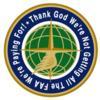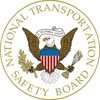FAA Appeals
FAA Appeals Commercial Drone Ruling, Cites Safety Concerns | TechCrunchHold the drone: FAA appeals court ruling on commercial use | Digital Trends
“The FAA is appealing the decision of an NTSB Administrative Law Judge to the full National Transportation Safety Board, which has the effect of staying the decision until the Board rules,” stated the FAA. “The agency is concerned that this decision could impact the safe operation
of the national airspace system and the safety of people and property on the ground.”
Read more: http://www.digitaltrends.com/cool-tech/hold-drone-faa-appeals-court-ruling-commercial-use/#ixzz2vP6d8BVy
Follow us: @digitaltrends on Twitter | digitaltrendsftw on Facebook
Drone Pilot Beats FAA In Court | Aero-News Network
New Ruling Means Commercial Drones Are Finally Legal… Sort Of
Well... he's had his day in court and for a change, the NTSB didn't see it the FAA's way -- As a result, Mr. Pirker is a much less poor man than he thought he'd about now (minus legal fees, of course).
Last October, the FAA fined this pilot of an R/C airplane, which it classified as a UAS, $10,000 for what the agency says was the reckless and careless operation of a Ritewing Zephyr powered glider aircraft in the vicinity of the University of Virginia (UVA), Charlottesville, Virginia.
The Order of Assessment (Docket No. 2012EA210009) charged that the 'pilot' operated the aircraft with a camera aboard that sent real-time video to the ground; that the flight was performed for compensation; and that he operated the aircraft at altitudes of approximately 10 feet to approximately 400 feet over the University of Virginia in a careless or reckless manner so as to endanger the life or property of another.
Specifically, the FAA charged that the pilot:
However; in an order dated March 6th, 2014, NTSB Law Judge Patrick Geraghty (the same Judge who had to deal with Aero-Conman, David Riggs, last year), he ruled that:
Follow us: @digitaltrends on Twitter | digitaltrendsftw on Facebook
NTSB Denies FAA's Right to Penalize UAS Pilot
Commercial Drone Pilots Cheer Judge Finding Against FAA - BloombergDrone Pilot Beats FAA In Court | Aero-News Network
New Ruling Means Commercial Drones Are Finally Legal… Sort Of
Remember Raphael "Trappy" Pirker? When last we wrote about this fellow, he was dealing with a recalcitrant FAA who had asserted that he had operated a drone illegally and was trying to stiff him for $10,000 smackers.
Well... he's had his day in court and for a change, the NTSB didn't see it the FAA's way -- As a result, Mr. Pirker is a much less poor man than he thought he'd about now (minus legal fees, of course).
Last October, the FAA fined this pilot of an R/C airplane, which it classified as a UAS, $10,000 for what the agency says was the reckless and careless operation of a Ritewing Zephyr powered glider aircraft in the vicinity of the University of Virginia (UVA), Charlottesville, Virginia.
The Order of Assessment (Docket No. 2012EA210009) charged that the 'pilot' operated the aircraft with a camera aboard that sent real-time video to the ground; that the flight was performed for compensation; and that he operated the aircraft at altitudes of approximately 10 feet to approximately 400 feet over the University of Virginia in a careless or reckless manner so as to endanger the life or property of another.
Specifically, the FAA charged that the pilot:
- Operated the aircraft directly towards an individual standing on a UVA sidewalk causing the individual to take immediate evasive maneuvers so as to avoid being struck by your aircraft.
- Operated the aircraft through a UVA tunnel containing moving vehicles.
- Operated the aircraft under a crane.
- Operated the aircraft below tree top level over a tree lined walkway.
- Operated the aircraft within approximately 15 feet of a UVA statue,
- Operated the aircraft within approximately 50 feet of railway tracks.
- Operated the aircraft within approximately 50 feet of numerous individuals.
- Operated the aircraft within approximately 20 feet of a UVA active street containing numerous pedestrians and cars.
- Operated the aircraft within approximately 25 feet of numerous UVA buildings.
- Operated the aircraft on at least three occasions under an elevated pedestrian walkway and above an active street.
- Operated the aircraft directly towards a two story UVA building below rooftop level and made an abrupt climb in order to avoid hitting the building.
- Operated the aircraft within approximately 100 feet of an active heliport at UVA.
However; in an order dated March 6th, 2014, NTSB Law Judge Patrick Geraghty (the same Judge who had to deal with Aero-Conman, David Riggs, last year), he ruled that:
- Neither the Part 1, Section 1.1, or the 49 U.S.C. Section 40102(a)6) definitions of "aircraft" are applicable to, or include a model aircraft within their respective definition.
- Model aircraft operation by Respondent was subject only to the FAA's requested voluntary compliance with the Safety Guidelines stated in AC 91-57,
- As Policy Notices 05-01 and 08-01 were issued and intended for internal guidance for FAA personnel, they are not a jurisdictional basis for asserting Part 91 FAR enforcement authority on model aircraft operations.
- Policy Notice 07-01 does not establish a jurisdictional basis for asserting Part 91, Section 91.13(a) enforcement on Respondent's model aircraft operation, as tho Notice is either (a) as it states, a Policy Notice/Statement and hence non-binding, or (b) an invalid attempt of legislative rulemaking, which fails for non-compliance with the requirement of 5 U.S.C Section 553, Rulemaking.
- Specifically, that at the time of Respondent's model aircraft operation, as alleged herein, there was no enforceable FAA rule or FAR Regulation applicable to model aircraft or for classifying a model aircraft as a UAS.
- Respondent's Motion to Dismiss be, and hereby is: GRANTED.
- Complainant's Order of Assessment be, and hereby is: VACATED AND SET ASIDE.
- This proceeding be, and is: TERMINATED WITH PREJUDICE"



No comments:
Post a Comment